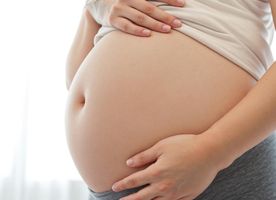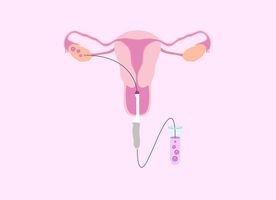Egg Freezing in Thailand
Search and Compare the Best Clinics and Doctors at the Lowest Prices for Egg Freezing in Thailand






Egg Freezing at Sikarin Hospital in Bangkok, Thailand





Egg Freezing at Thonburi Bamrungmuang Hospital in Bangkok, Thailand





Egg Freezing at First Fertility PGS Center in Bangkok, Thailand





Egg Freezing at LRC Fertility Center in Bangkok, Thailand





Egg Freezing at Genea IVF and Genetics in Bangkok, Thailand





Egg Freezing at Bumrungrad International Hospital in Bangkok, Thailand
Our partner clinics in are accredited by the following associations












































































































































No Time?
Tell us what you're looking for and we'll reach out to the top clinics all at once
WHY US?












































































































































No Time?
Tell us what you're looking for and we'll reach out to the top clinics all at once
What does a Egg Freezing Procedure Involve?
Before you begin your egg freezing process, you need to first undergo a series of blood tests as an assessment, these include:
- Infectious disease screening - this will determine if you have an infectious disease like HIV or Hepatitis to ensure that your affected eggs will be stored separately to prevent them from contaminating the other eggs.
- Ovarian reserve testing - this will determine the quality and quantity of your eggs. The results may also help predict how your ovaries will respond to fertility medications.
You also have to expect that Egg Freezing follows a series of steps; furthermore, egg retrieval will closely follow a similar process to IVF:
Ovarian stimulation - during this first step, you will be given hormonal injection one to several weeks to produce multiple eggs. Your doctor may also give you medications to prevent premature ovulation.
Egg retrieval - this will be done under sedation. Typically, an ultrasound probe will be inserted into your vagina to determine the follicle, a needle will then be guided through your vagina and into the follicle. A suction connected to the needle will be the one to retrieve the eggs from the follicle.
Freezing - after your eggs are harvested, they will now be cooled to a subzero temperature to preserve them for future use.
Although the procedure will differ from country to country and even the hospitals/clinics in Thailand may differ somewhat, but in general, you can expect the following steps carried out over two separate trips:
- Consultation & evaluation with the specialist. Such evaluations may include a physical examination, blood screening (including Thalassemia and serology testing), pelvic examination, cervical cancer screening, and transvaginal ultrasound.
- If everything is clear after the initial consultation & evaluation with the specialist, you will need to come back to Thailand on the second day of your menstrual for a hormone test (FSH & Estrogen).
- You will be prescribed with a medication to be injected daily for 10 days (starting on the second day of the menstrual cycle until the twelfth day of cycle).
- An Ovum pick-up procedure will be performed on the twelfth day of the cycle (this is performed without the need to be present).
- Egg Freezing performed and eggs will be frozen for a pre-determined number of years with the option to unfreeze them at any time.
How Long Should I Stay in Thailand for a Egg Freezing Procedure?
While the process of egg extraction itself can be completed within a single day, the preparatory steps leading to this procedure usually span about 10 to 12 days. It's imperative to consider the preliminary consultations, evaluations carried out before the procedure, and subsequent follow-up sessions, which can substantially prolong the overall timeframe.
Egg retrieval takes roughly about 20 minutes to finish and you will not need any stitches after the procedure since your doctor will not perform any cutting. Just bear in mind that you'll need to plan two separate trips, with the second being timed around your menstrual cycle.
What's the Recovery Time for Egg Freezing Procedures in Thailand?
Typically, the recuperation period following a Egg Freezing is relatively short. The step involving egg extraction during the procedure is carried out while the patient is sedated, typically allowing them to resume routine tasks within one or two days. Nonetheless, it's essential to recognize that each woman's physiology is unique and reactions to such procedures can differ.
You can typically go back to your normal activities, including work and exercise within a week of your egg retrieval. Your doctor will also advise you to avoid having unprotected sex to prevent unintended pregnancy.
What sort of Aftercare is Required for Egg Freezing Procedures in Thailand?
The post-Egg Freezing care aims at mitigating discomfort and expediting recovery. You'll likely be back to your standard routine in a couple of days, but adhering to your healthcare provider's aftercare advice is vital. This advice could encompass techniques to cope with pain, guidance on nutrition, and exercise regulations. Furthermore, paying attention to any physical alterations after the operation and promptly alerting your healthcare provider in case of any concerns is essential. Such concerns could range from intense aches, severe bleeding, or high temperature. Frequent check-ins could significantly contribute to closely tracking your recovery and dealing with any complications swiftly.
The whole process of egg freezing may take between 10 to 14 days. You may freeze your eggs in the long term even for about 10 years.
What's the Success Rate of Egg Freezing Procedures in Thailand?
Given the time when you are ready to have a child, your frozen eggs will be thawed, fertilized with a sperm cell in a lab and then implanted into your uterus or your gestational carrier’s uterus (if in case).
Your chances of getting pregnant after implantation will depend on your age and the time of freezing. It is also important to know that the older you are at the time of your egg freezing, the lower the chances that you’ll achieve childbirth. In addition, your chances of becoming pregnant after implantation are usually about 30% to 60%.
Are there Alternatives to Egg Freezing Procedures in Thailand?
Ovarian Tissue freezing or Ovarian Tissue Banking is one alternative to egg freezing. This is one method of fertility wherein the outer layer of your ovary, which contains a large number of immature eggs, will be taken out of your body and also be frozen for future use.
Another alternative is embryo freezing, typically after IVF treatment, your ovaries are stimulated to produce more eggs and this will be followed by fertilization and embryo culture. There will usually be an excess of good embryos which you can freeze for future use.
This information has been accurately sourced and verified by a medical professional for its accuracy, however, we strongly recommend you to consult with your doctor before pursuing medical procedures overseas.


